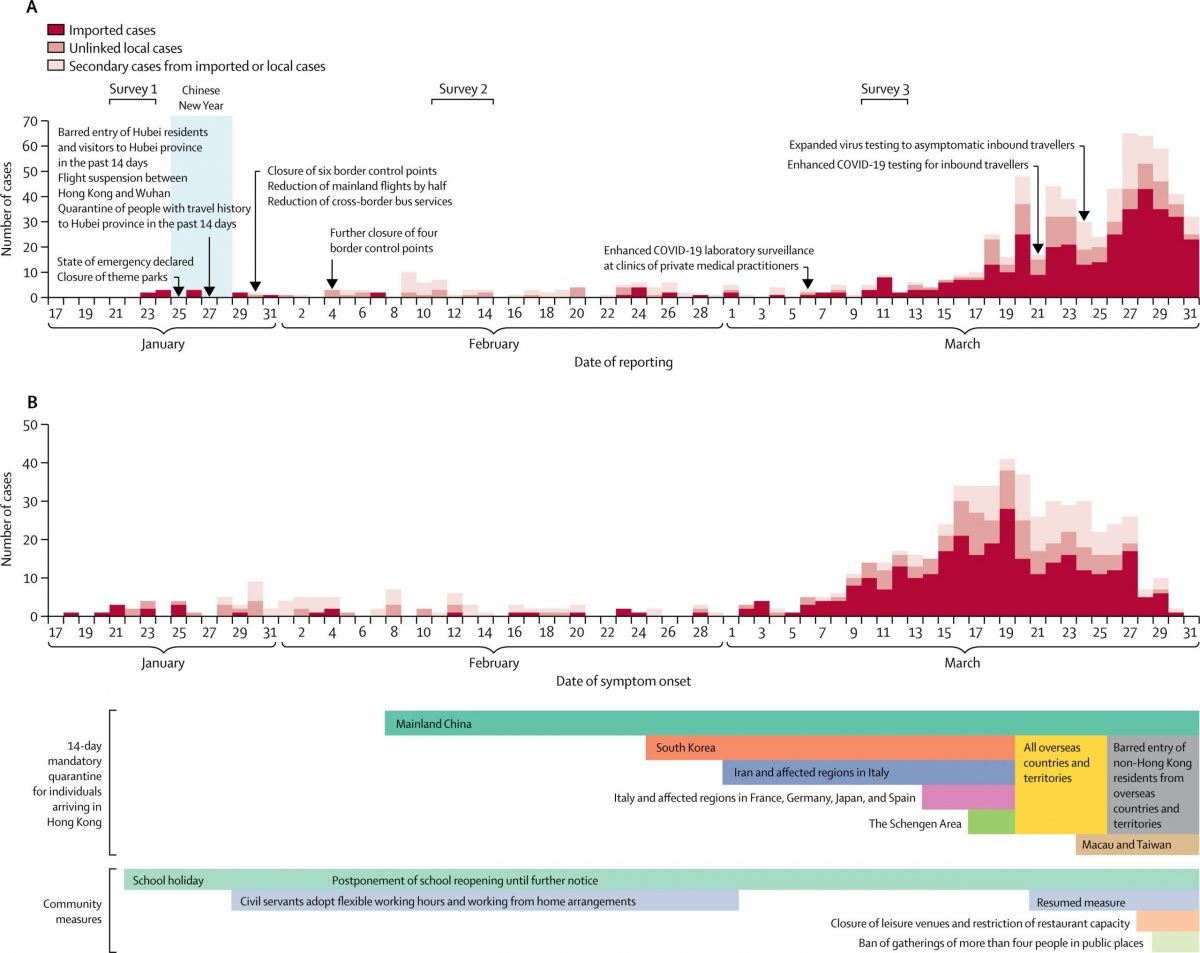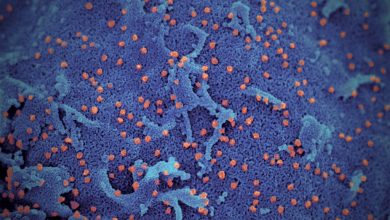Research
[The Lancet Public Health] Impact assessment of non-pharmaceutical interventions against coronavirus disease 2019 and influenza in Hong Kong: an observational study

The Lancet Public Health, 17 April 2020
Prof Benjamin J Cowling, Sheikh Taslim Ali, Tiffany W Y Ng, Tim K Tsang, Julian C M Li, Min Whui Fong, Qiuyan Liao, Mike YW Kwan, So Lun Lee, Susan S Chiu, Prof Joseph T Wu, Peng Wu, Prof Gabriel M Leung

Highlights:
- Analysed data on laboratory-confirmed COVID-19 cases, influenza surveillance data in outpatients of all ages, and influenza hospitalisations in children. Estimated the daily effective reproduction number (Rt) for COVID-19 and influenza A H1N1 to estimate changes in transmissibility over time.
- Influenza transmission declined substantially after the implementation of social distancing measures and changes in population behaviours in late January.
- Non-pharmaceutical interventions (including border restrictions, quarantine and isolation, distancing, and changes in population behaviour) were associated with reduced transmission of COVID-19 in Hong Kong, and are also likely to have substantially reduced influenza transmission in early February, 2020.
- Increases in local cases could be attributed to the transmission of infections into the community, resulting from an increasing number of imported infections since early March.
- Individual behaviours in the Hong Kong population have changed in response to the threat of COVID-19. People have been choosing to stay at home, and in our most recent survey, 85% of respondents reported avoiding crowded places and 99% reported wearing face masks when leaving home.
- The measures implemented in Hong Kong are less drastic than those used to contain transmission in mainland China, and are probably more feasible in many other locations worldwide. If these measures and population responses can be sustained, avoiding fatigue among the general population, they could meaningfully mitigate the impact of a local epidemic of COVID-19.
Related media coverage:


![Photo of [Nature Microbiology] Metallodrug ranitidine bismuth citrate suppresses SARS-CoV-2 replication and relieves virus-associated pneumonia in Syrian hamsters](https://fightcovid19.hku.hk/content/uploads/2020/10/Image-2-390x220.jpg)
![Photo of [Cell Reports Medicine] Oral SARS-CoV-2 inoculation establishes subclinical respiratory infection with virus shedding in golden Syrian hamsters](https://fightcovid19.hku.hk/content/uploads/2020/10/fx1_lrg-e1601870075235-390x220.jpg)